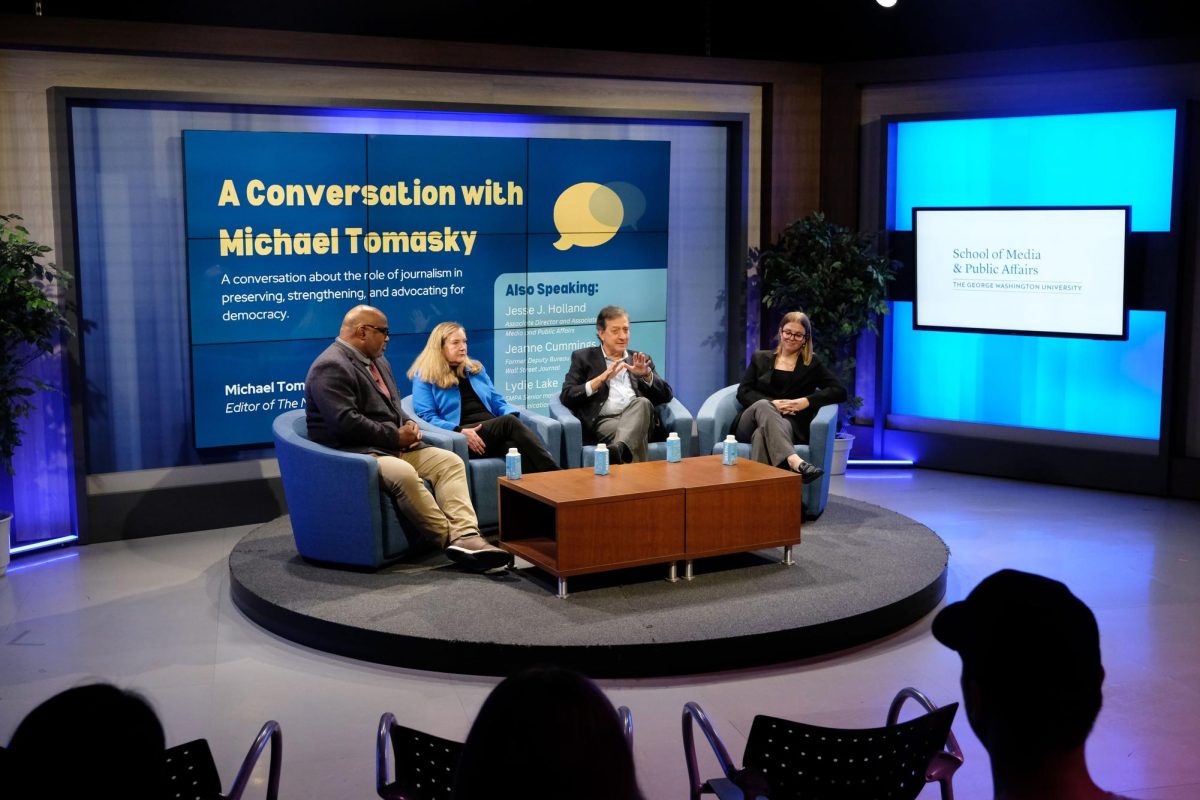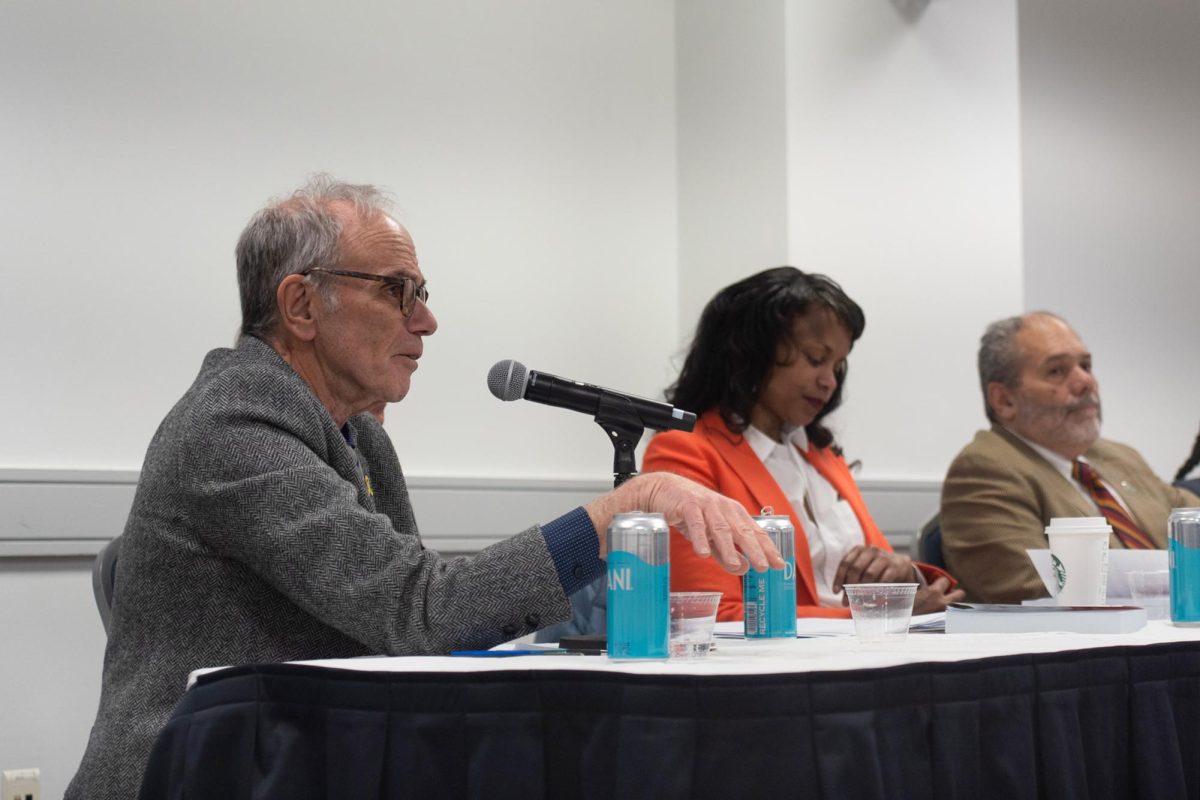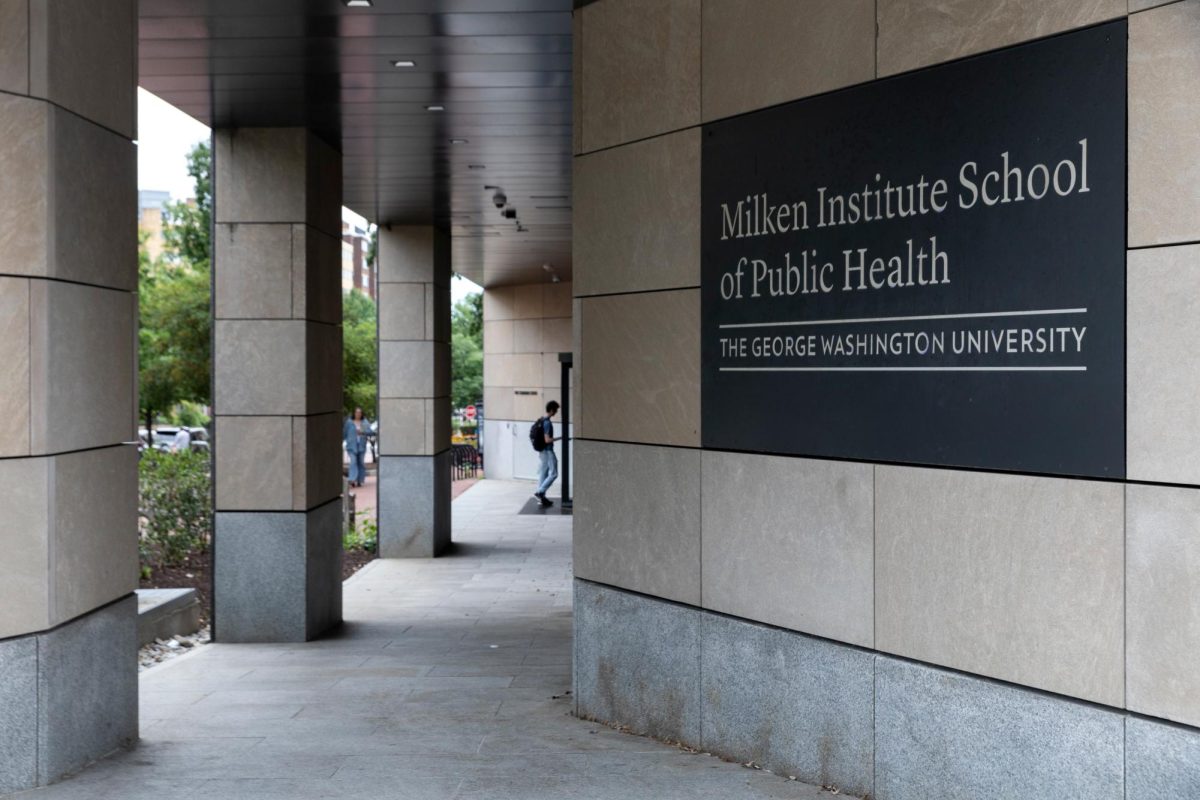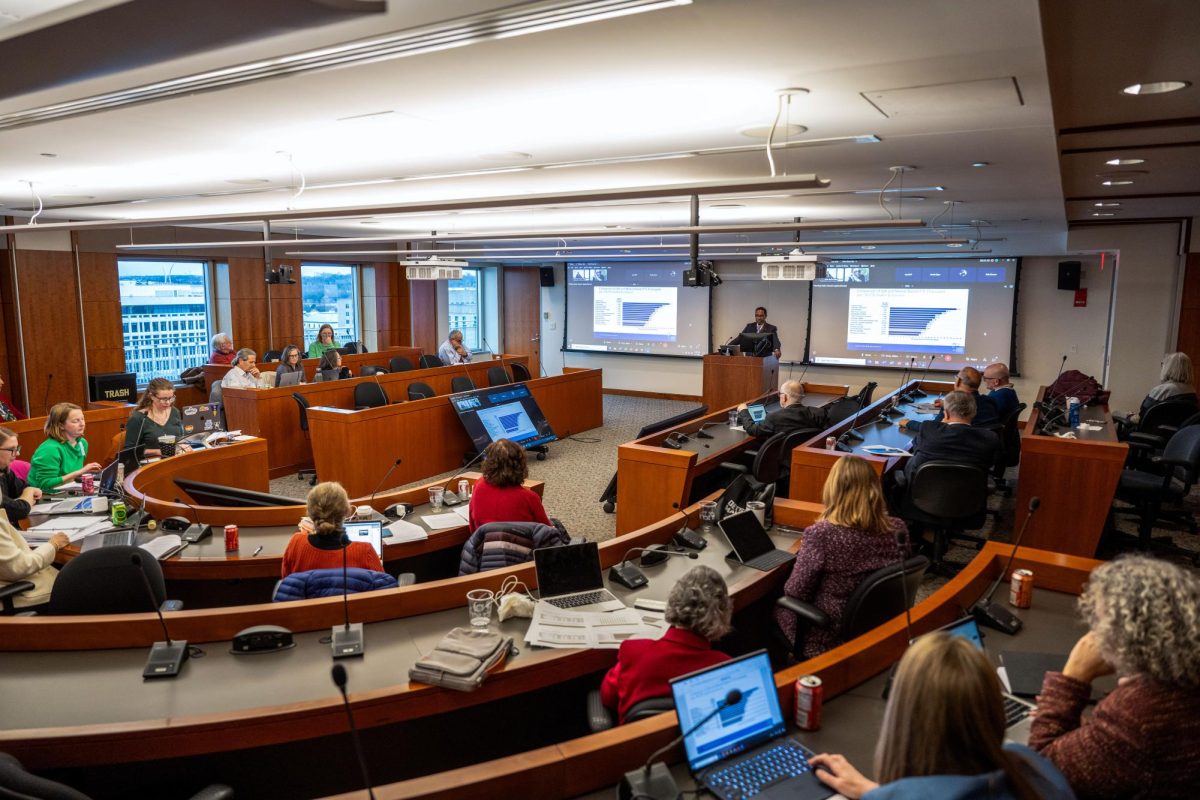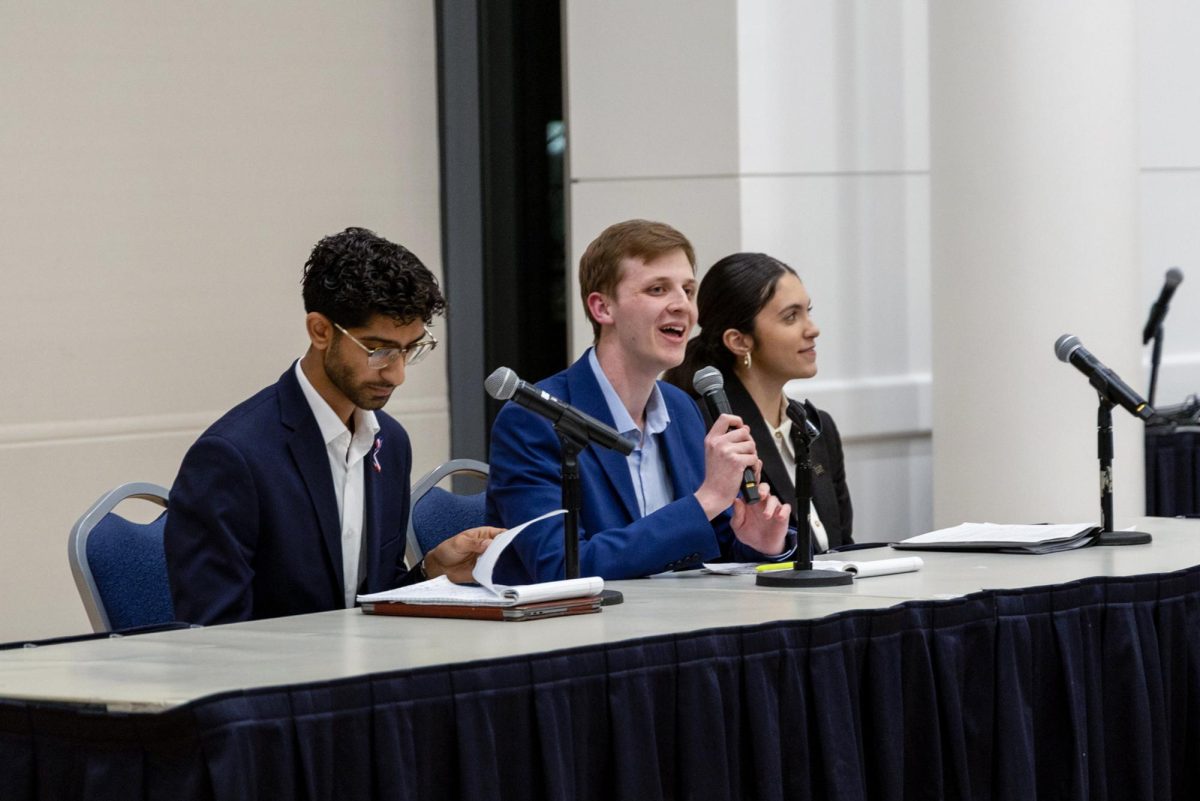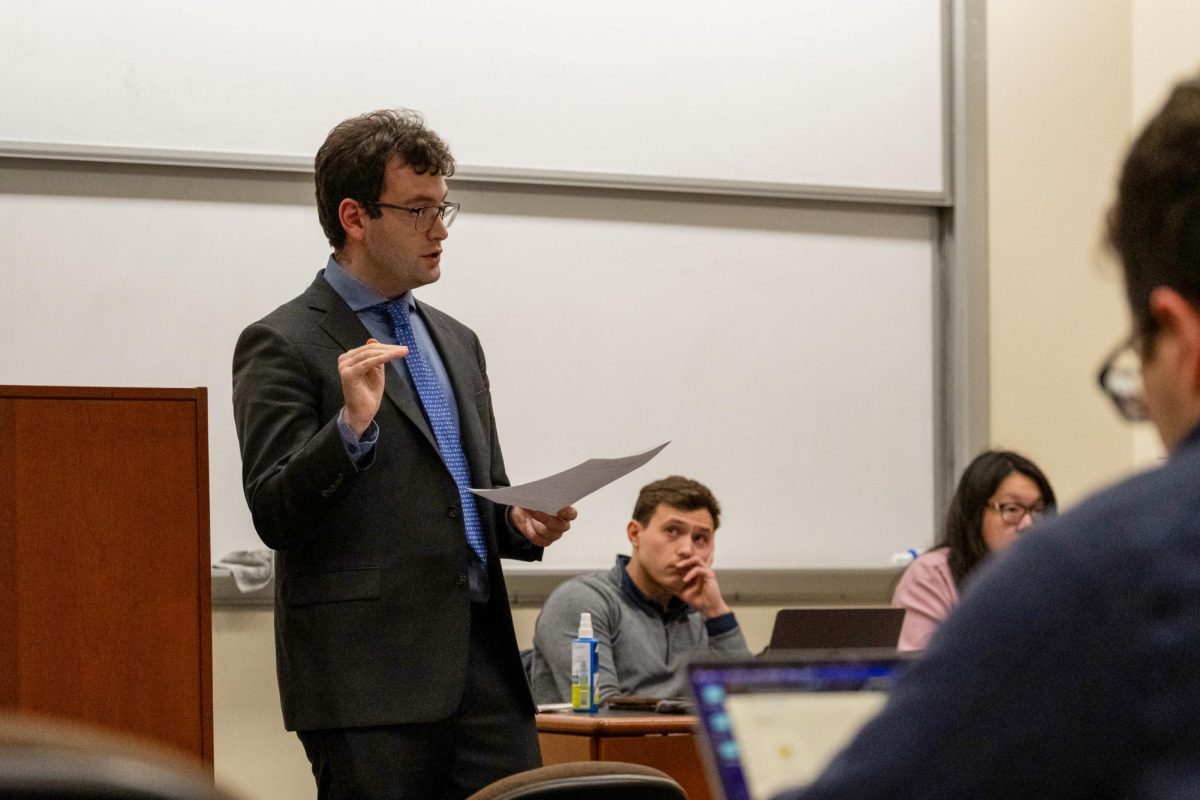The editor of a long-running news magazine spoke about the changing media landscape and maintaining integrity while covering populist politicians in a discussion at the School of Media & Public Affairs on Thursday.
Michael Tomasky, editor of the New Republic, was joined by Associate SMPA director and Professor Jesse Holland, former Wall Street Journal Deputy Bureau Chief Jeanne Cummings and SMPA senior Lydie Lake to discuss covering politics and the impacts of social media and artificial intelligence on journalism. The event, held in the SMPA television studio, was attended by over 12 people and was also streamed on the SMPA YouTube.
Peter Loge, director of SMPA, introduced the event and called Tomasky one of the country’s “leading thinkers” on democracy, and said he is hoping to have Tomasky back for a recurring series.
Tomasky said the media has faced an increased burden in recent years when it comes to covering right-wing politicians, namely Donald Trump, and has struggled to confirm legitimacy in their words.
“We want to paint a true picture of what we’re reporting on, and the second is fairness,” Tomasky said. “We want to be fair to both sides, or all sides if there are more than two, as there often are. We want to accomplish both of these goals.”
Tomasky said in comparison to the recent expansion of other outlets, right-wing media platforms like Newsmax and One America News have seen the greatest growth, which is a shift from past decades when the right-wing media organizations were much smaller.
“These days, with the cutbacks we’ve been discussing about, the mainstream media is smaller,” Tomasky said. “The right-wing media has gotten bigger and bigger and bigger. It’s not just Fox News.”
Cummings said along with this growth, coverage from the mainstream media has not only become weakened, but also more difficult to do in a truthful manner. She said the issue of truthful and unbiased reporting also applies to other subjects, including the age and cognitive abilities of politicians. She said stories of this nature need to be backed up with a “fair amount” of evidence.
“These are really delicate stories because you’re talking about the mental fitness of another human being,” Cummings said. “And so they just have to be reported very carefully.”
Holland said the difficulty of journalists to maintain integrity in reporting is represented in a larger discussion of how and where journalists are supposed to differentiate their roles of defending democracy versus reporting on fact. He said journalists don’t directly defend democracy but rather focus on serving the public.
“The job of reporters is not to defend democracy,” Holland said. “The job of reporters is to say, ‘Here’s what happened, as close to the truth as we can give it to you.’ It might be the job of columnists and of newspapers as an institution, televisions networks as an institution, to defend democracy.”
Lake, a staff writer for The Hatchet, said along with the decline in mainstream media and the rise in right-wing media, social media has also become a change in the media landscape. She said platforms such as TikTok — given their accessibility — have gained popularity among younger generations, although they have made it more difficult to monitor political misinformation.
“As social media adapts and journalism changes, all journalists need to be on this kind of social media,” Lake said. “While they not be able to combat every single thing that’s being spurred on social media, because it’s such an instantaneous atmosphere of information, they need to build a platform for themselves and combat these things right away.”
Lake said social media will continue to play an integral role in the development of journalism, especially in places where censorship has become more common.
“Social media is the one pocket where people who want to report neutrally and from a fair background can publish their content,” Lake said. “And they don’t have to worry about restrictions from the government.”
When prompted with the issue of artificial intelligence in journalism, Lake said she is not concerned about artificial intelligence eliminating jobs in the space because journalists cannot report on “human stories” without a human reporter.
“I think AI can be used as a tool in the future,” Lake said. “It can be used for writing social media posts or quick little things, but again, you always need a pair of human eyes looking that over before it’s published to any audience.”


